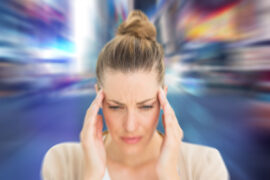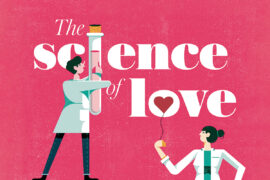Cutting Through the Chemical Muck in Everyday Products
Finding everyday products without harmful chemicals can be a hard shopping aisle to navigate, as more companies are using marketing terms such as better-for-you, natural, hypoallergenic, organic, and non-toxic.
Many marketing campaigns use those words interchangeably and that’s where things can get tricky. It can be difficult and time-consuming for shoppers to comb through endless product recommendations and learn what superior ingredients are and what should be avoided. Currently, there’s no universal explanation, formal regulation, or legal definition for any of these terms, and product labels can be extremely vague.
And just because a product is marketed alongside photos of beautiful plants and uses lingo like nontoxic or organic, it doesn’t always ensure the product is healthier, safer, or better for you and your family.
There are three categories of potentially harmful chemicals in everyday products to be on the lookout for, even when purchasing all-natural products. The list includes allergens, carcinogens, and endocrine disruptors. Allergens include any added fragrances and preservatives. Carcinogens are cancer-causing agents found in formaldehyde and mineral oils. Endocrine disruptors are chemicals such as BPA, dioxin, and phthalates that may injure the body’s endocrine system and produce adverse developmental, reproductive, neurological, and immune defects.
These chemicals can be found in everything from shampoo to household cleaning products. The U.S. Food and Drug Administration currently only restricts the use of 11 chemicals, but the European Union has banned the use of over 1,300, and ingredients that the U.S. considers to be of low concern can have names so complicated your head spins.
So how do you know the difference between good and harmful ingredients and make the right choices for you and your family?
It’s going to take some research on your part. The challenge is reading between the lines on labels and knowing exactly what you’re buying, and luckily, there’s an app for that called Think Dirty.
Think® Dirty.
Decode the unintelligible list of toxic ingredients on the back of cleaning and personal care products with Think Dirty. The app is free for Apple and Android users and it’s easy to utilize at home, online, or while shopping at stores. It offers incredible and careful detail about what’s in your everyday use products and translates the information so you can easily process and understand it. All you have to do is scan a product bar code and Think Dirty will generate its Dirty Meter and provide a 0-10 safety rating allowing you to make an informed choice about whether or not you should purchase the product. If needed, the app will even offer better alternatives. The database contains over 550,000 products so they’ll be no shortage of options for you and your family to lead healthier lives.





